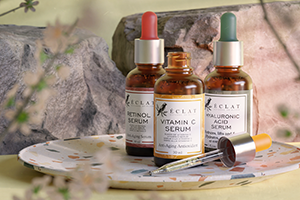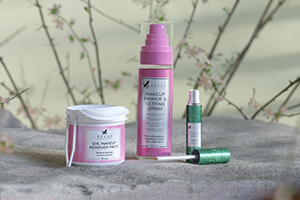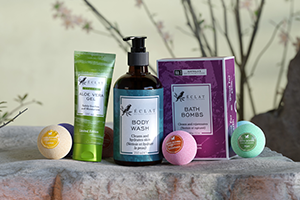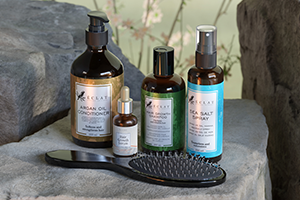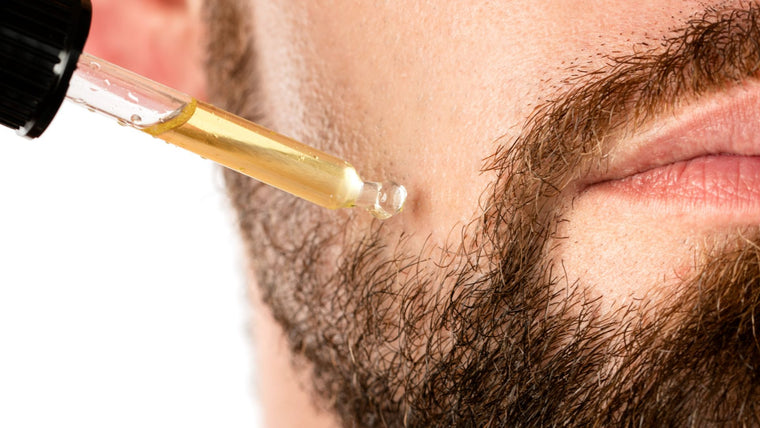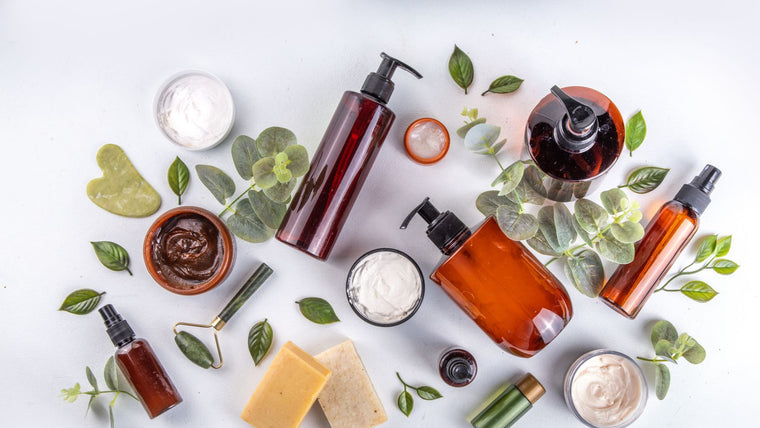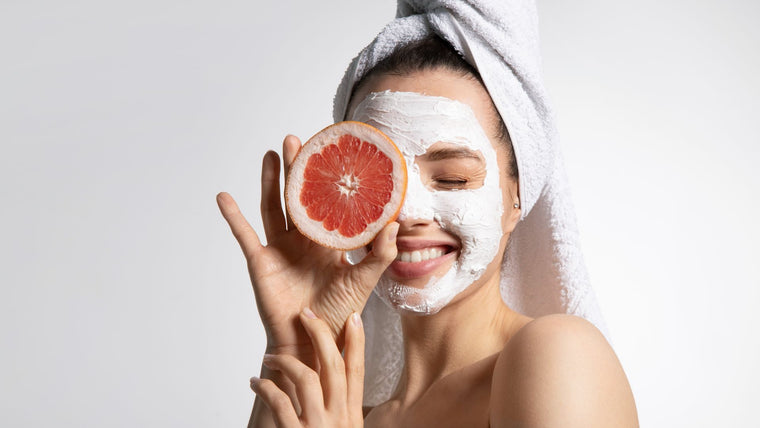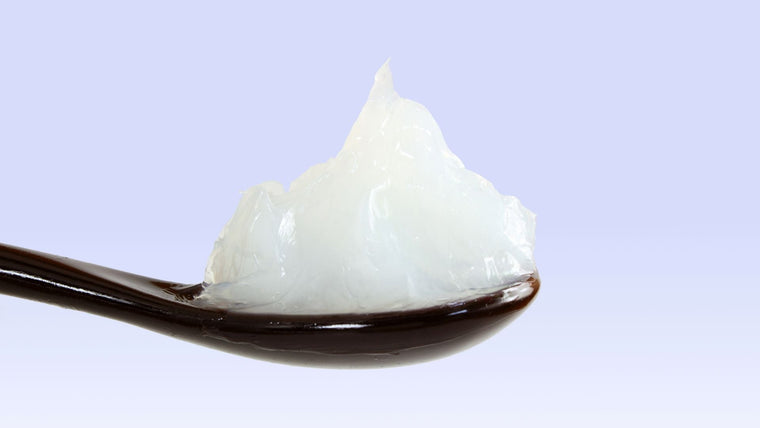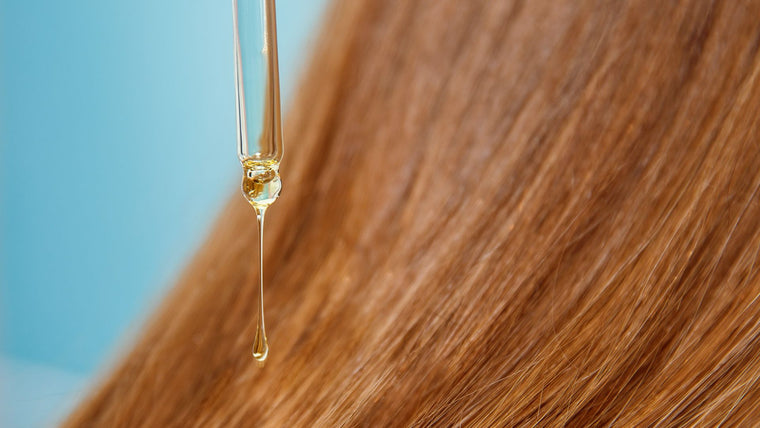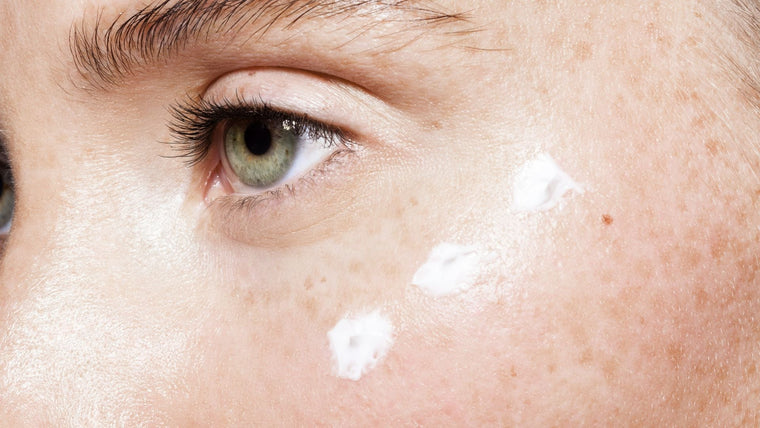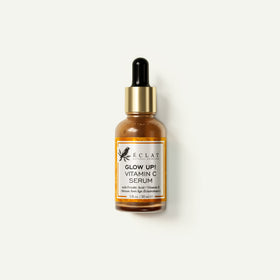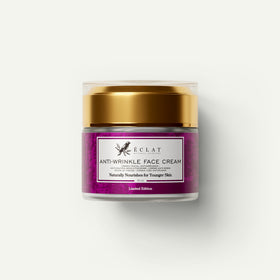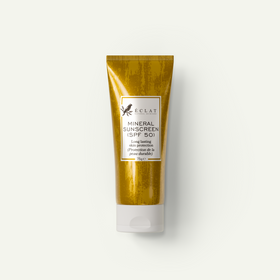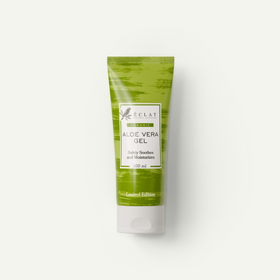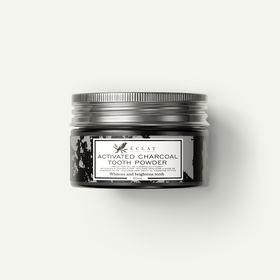Why You Need to Know the Difference Between Hyaluronic Acid and Salicylic Acid
- 25/05/2023
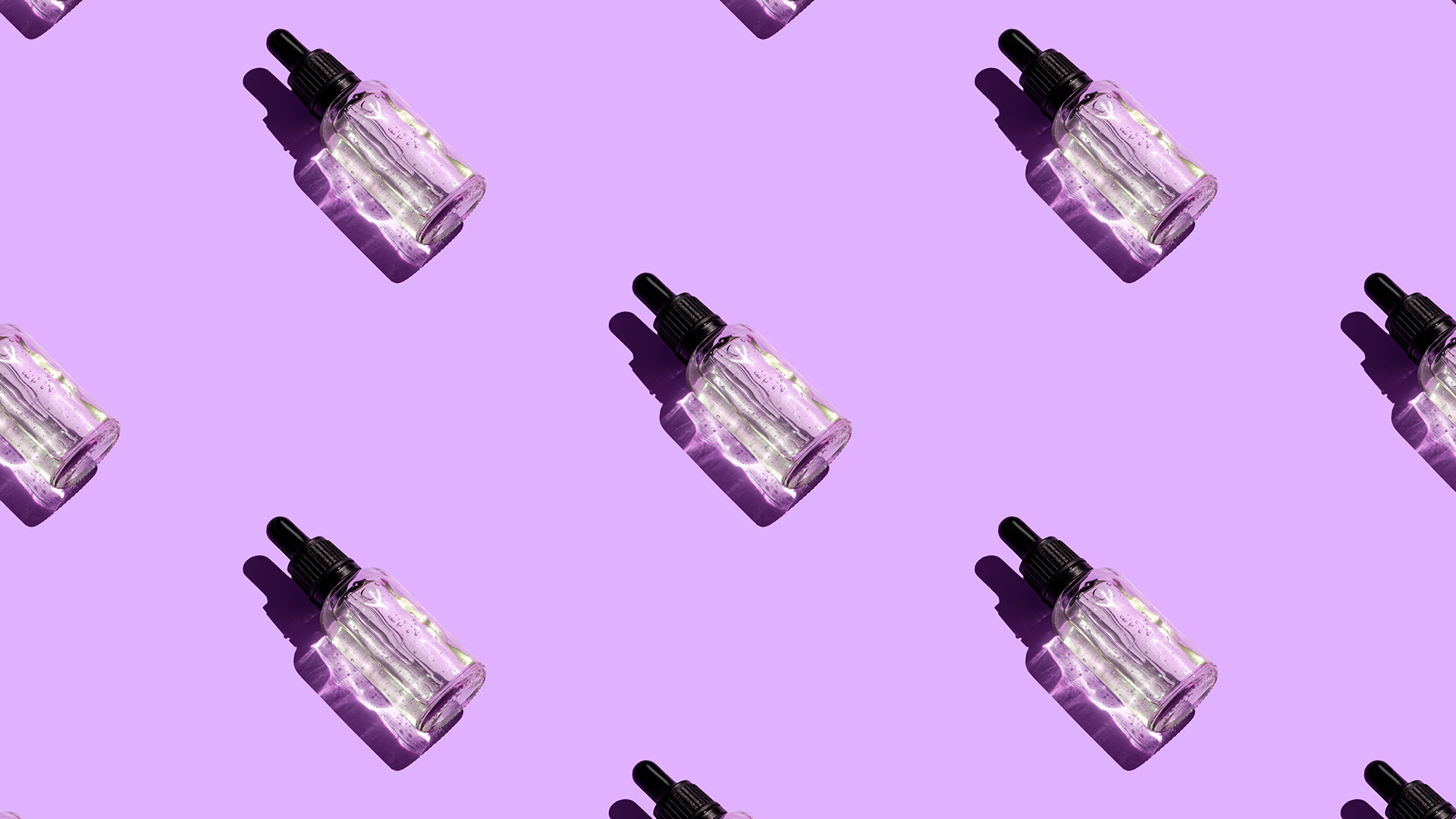
What is hyaluronic acid?
We don’t like to pick favorites, but hyaluronic acid (HA) has a special place in our hearts. A fun fact about this super-hydrating ingredient is that it can hold up to 1000 times its weight in water. If you're prone to dryness—or if you just want glowy, bouncy skin—this one’s for you.Hyaluronic acid is skin's most important glycosaminoglycan. To put that in less science-y terms, it’s a key player in keeping your complexion fresh, balanced and protected.
Humectant HA works overtime to keep water molecules right where your skin needs them: on the surface, for maximum hydration. If you're nerdy about skincare, you probably already know about transepidermal water loss (TEWL). Hyaluronic acid prevents this common problem by slowing water's evaporation rate from the skin.
One reason hyaluronic acid is so universally loved is because it's suitable for all skin types—yep, even sensitive skin—so everyone can benefit from its moisture-binding magic.
Want to know how hyaluronic acid can enhance your routine? Let us count the ways...
Benefits for skin
-
Hydrating: Using hyaluronic acid is the beauty equivalent of chugging from one of those extra-large water bottles. It's a lifesaver for dry, dehydrated skin. Our tip? For even more hydrating action, layer HA under a rich moisturizer.
-
Plumping: If aging skin if one of your concerns, here's some good news: hyaluronic acid is really good at boosting collagen production. It's one to have in your arsenal for conquering fine lines and wrinkles.
-
Restorative: Glowing, fresh-from-a-facial skin can be achieved at home—you just need clever ingredients in your routine. Including a HA-based product in your lineup will smooth away dead skin cells and restore radiance.
-
Acne-calming: A lot of blemish-busting skincare products don't prevent breakouts—they actually trigger them by drying skin and upsetting the microbiome. A hyaluronic acid serum keeps the delicate skin barrier in balance, making angry eruptions less likely. Furthermore, research conducted in 2017 suggests that HA can also help to keep oiliness in check.
What is salicylic acid?
Blackheads, whiteheads, under-the-skin spots, oily T-zones... they happen to the best of us. If you're struggling to keep acne-prone skin under control, it's time to get to know salicylic acid (SA).

What makes it a must-have? Well, it's a beta hydroxy acid (BHA), meaning it's a key player in the chemical exfoliation game. Unlike water-soluble alpha hydroxy acid (AHA) exfoliants—which include popular choices like glycolic acid and lactic acid—beta hydroxy acid is oil soluble. That means it can penetrate deeper to fight congestion, remove dead skin cells and improve skin texture. Bye bye, blackheads.
Salicylic acid is an organic compound found naturally in willow bark and several fruits and vegetables. Go for products with safe but high concentrations of 0.5% - 2% SA for effective at-home oily skin treatment.
There's research to indicate BHAs are also gentler on sensitive skin types: a 2010 study found that 2% salicylic acid was less irritating than 10% glycolic acid. However, whenever you're using any skincare acids, we recommend taking it slowly to build up your tolerance. Oh, and don't forget SPF!
Benefits for skin
-
Unclogs pores: Salicylic acid exfoliates both on the skin's surface and deep into the pore lining.
-
Calms inflammation and redness: Antibacterial and anti-inflammatory qualities mean that salicylic acid soothes blemish-prone skin while removing common acne triggers.
-
Reduces sebum: You'll enjoy a more matte complexion when using SA. Removing excess oil from pores occurs naturally during its exfoliation process.
-
Busts blackheads and whiteheads: While its bacteria-fighting properties calm cystic acne, salicylic acid works best against blackheads and whiteheads because it dissolves them from pores.
The difference between hyaluronic acid and salicylic acid
Now that we've covered both of these superstar ingredients, you'll know that they have different actions in skincare products. Hyaluronic acid hydrates and increases skin's ability to retain moisture, while salicylic acid exfoliates and detoxes pores.

Can I use hyaluronic acid and salicylic acid together?
Yes! You can combine these ingredients to reap all the benefits. Sensitive skin types will particularly benefit from using both hyaluronic acid and salicylic acid in their skincare routine, as any irritation or dryness caused by SA will be countered by soothing HA.
We recommend applying SA products first, then following with HA products, a moisturizer (to lock moisture in further), and sun protection.
Why Éclat Hyaluronic Acid serum is the best choice for your skin
If you're on the hunt for a new hyaluronic acid serum, why not try ours?

You'll boost skin elasticity, hydration levels, and cell turnover with this advanced formula. It's powered by plant-based, multi-molecular 2.5% HA that gets deep into skin's lower layers and draws water to the surface. We also add powerful antioxidants like vitamins C (ascorbic acid) and E, organic aloe vera, and green tea. They smooth fine lines and wrinkles and balance out skin tone.
It's vegan, cruelty free, and developed with dermatologists to be suitable for all skin types.
Why choose Éclat's salicylic acid products?
We love using salicylic acid in our formulas to support problem skin conditions.
With powerful (but non-drying) exfoliating properties, our Salicylic Acid Cleanser prevents blemishes and removes makeup. It's powered by nanonized salicylic acid, which can go deeper into skin to dissolve dead skin cells and other acne triggers. Plus, added niacinamide and green tea calm inflammation and regulate oiliness.

Our Acne Cream is powered by salicylic acid and ascorbic acid (vitamin C) to clarify zit-prone skin and stimulate cell turnover. We believe in the power of nature, so we also include mattifying safflower oil, which is scientifically proven to control sebum production and tighten pores.
To summarize...
Hyaluronic acid and salicylic acid are two of the skincare community's most-loved good guys. Whether your skin type is oily, dehydrated or somewhere in between, it's sure to benefit from these ingredients' smoothing, clearing, anti-aging powers.
Recommended Products


